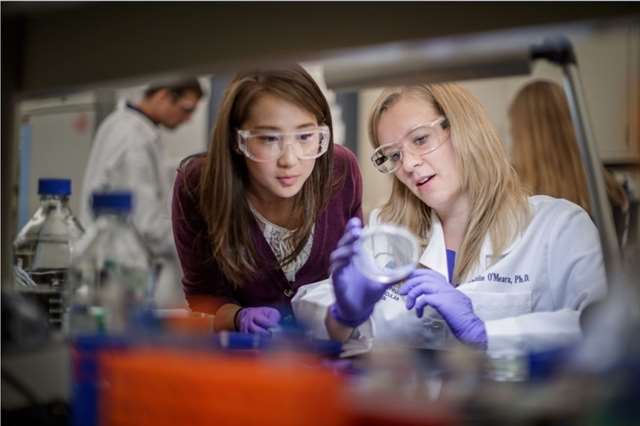Medical College of Wisconsin Professor Leads Development of Updated Guideline on Radiation Therapy for Endometrial Cancer
Milwaukee, Dec. 16, 2022 – A newly-updated clinical guideline issued by the American Society for Radiation Oncology (ASTRO) provides recommendations on the use of radiation therapy and systemic therapy after surgery to treat patients with endometrial cancer. The guideline also considers the role of surgical staging and molecular profiling techniques in determining whether a patient should receive post-operative therapy.
 The task force that developed the updated guideline was led by Beth A. Erickson, MD, FACR, FASTRO, FABS, professor of radiation oncology and surgery at the Medical College of Wisconsin. The guideline is published in the January/February 2023 issue of Practical Radiation Oncology.
The task force that developed the updated guideline was led by Beth A. Erickson, MD, FACR, FASTRO, FABS, professor of radiation oncology and surgery at the Medical College of Wisconsin. The guideline is published in the January/February 2023 issue of Practical Radiation Oncology.
“Since ASTRO published its original endometrial cancer guideline in 2014, multiple research teams have published high-quality clinical trials on the usefulness of post-operative therapy for patients with different disease stages and risk profiles,” said Dr. Erickson.
“For patients with an elevated risk of recurrence following endometrial cancer surgery, clinical trials consistently show that adjuvant therapy can improve outcomes,” she added. “Our task force synthesized findings from these trials into recommendations for external beam radiation, brachytherapy, and chemotherapy in the post-surgical setting, with a focus on multidisciplinary, patient-centered care.”
The task force also considered new trials on the accuracy of surgical staging techniques and the increasing role of molecular profiling for endometrial tumors in guiding adjuvant therapy decisions.
“The guideline is also futuristic in that it suggests we begin using molecular markers to help assist in our adjuvant treatment recommendations,” said Dr. Erickson. “We [Froedtert & the Medical College of Wisconsin] are a major referral center for treatment of endometrial cancer patients. Any tools we can use to tailor our recommendations are valuable.”
Endometrial cancer is the most common type of gynecological cancer in the U.S., with more than 60,000 estimated new diagnoses each year. Standard treatment involves surgical removal of the patient’s uterus, cervix, fallopian tubes, and ovaries, with additional post-operative therapy indicated for patients with risk factors for cancer recurrence.
This updated guideline includes treatment algorithms for stage I-II endometrial cancers, stage I-II cancers with high-risk histologies, and stage III-IVA cancers. It also details the recommended use of external beam radiation therapy (EBRT), vaginal brachytherapy (VBT), and chemotherapy for patients with different risk profiles, as well as which patients should not receive adjuvant therapy.
The guideline was based on a systematic literature review of articles published through August 2021. The task force included radiation oncologists, medical and gynecological oncologists, a medical physicist, a radiation oncology resident, and a patient representative. The guideline was developed in collaboration with the American Brachytherapy Society, the American Society of Clinical Oncology and the Society of Gynecologic Oncology.
The updated guideline also acknowledges the negative impact of systemic racial disparities on endometrial cancer outcomes. While it is focused on the medical considerations for treatment, the task force wanted to recognize the complex nature of access to care for underserved patient populations.
NOTE: ASTRO's clinical guidelines are intended as tools to promote appropriately individualized, shared decision-making between physicians and patients. None should be construed as strict or superseding the appropriately informed and considered judgments of individual physicians and patients.
Keep up with the latest news. Sign up for Newsroom Alerts.
Latest press releases, stories and resources.
MCW Media Contacts
The media relations team at MCW is happy to assist in coordinating experts for interviews. Please reach out to us at:
media@mcw.edu
(414) 955-8764
Contact us


